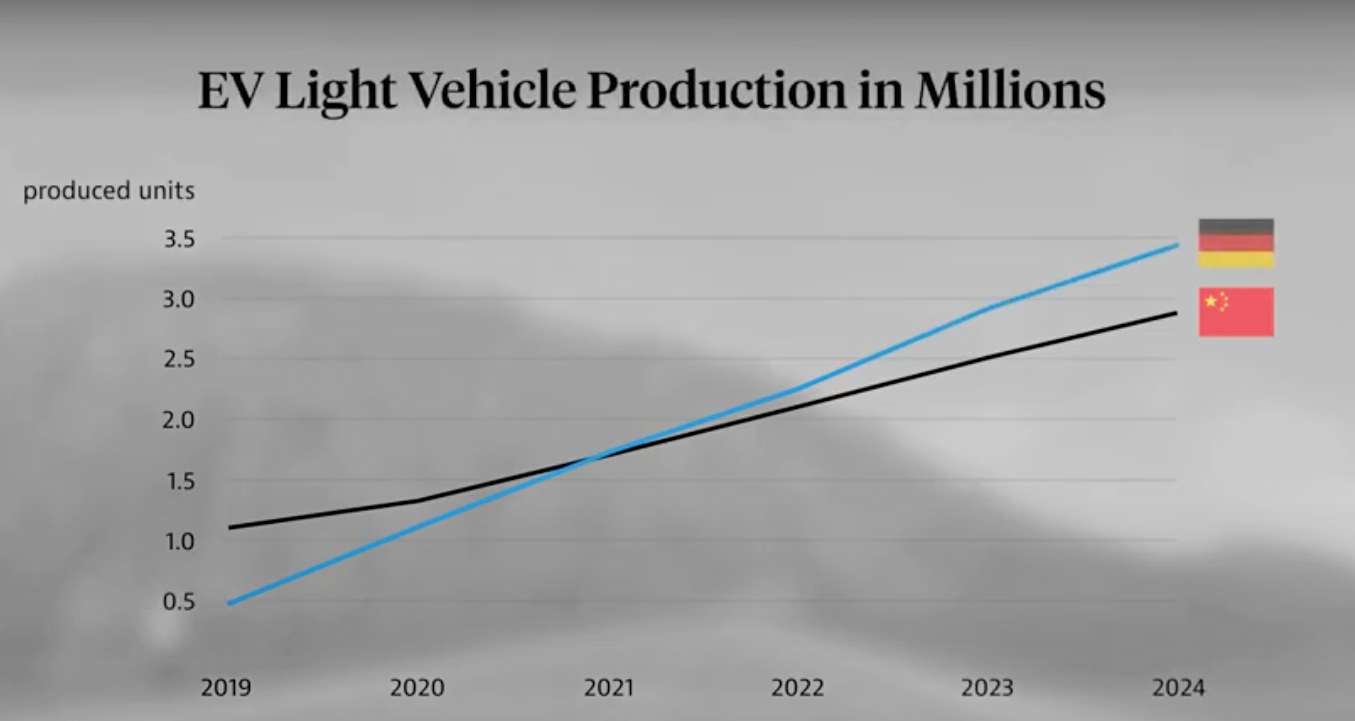After a very shaky and turbulent start, with significant failures such as emissions scandals, Germany has finally put the lead in its commitment to the electric car. Something that is profoundly transforming an industry linked to the combustion engine that is now focusing its new investments on new technologies.
According to the consulting firm McKinsey, the reasons for this new perspective in electric vehicles must be found in several factors, beginning with the determined commitment made by the Angela Merkel government. Preventing its powerful automobile industry from losing the electric mobility train by creating a project where he wanted Germany to be neutral in emissions in 2050, and that was a massive boost to renewable energy and electric cars.
From that moment, the German brands began to remove spider webs from their electrical projects. Mainly after the severe problem of the Dieselgate and its wide-ranging consequences, which has resulted in gigantic investment projects that have led to the arrival of the first models, but that is still the tip of the iceberg of an offer that will explode in the coming months.
As an example of this new dynamic is Volkswagen, the German group is finalizing the arrival of its ID family on the market. The biggest bet of the last decades that will give the starting signal to an initiative that will mobilize more than 54,000 million euros in the next five years. Allowing them to achieve production of 1.5 million units a year by 2025, while the group’s hybrid will continue to grow and will reach 75 different models worldwide by 2030.
In parallel, VW is working to build its battery factories, with two extensive facilities under construction. One in Germany and the other in collaboration with the Northvolt company, which will be located in Sweden.
For its part, BMW will press the reset button after an early start, but unambitious. The arrival of the i3 and i8 in 2013 did not have a significant impact in terms of sales. Something they hope to change in 2021 with the arrival of the new generation models
The i4 or iNext will join the veteran i3, and the new iX3, to form a family that is undoubtedly much more complete and competitive than the first batch. A different strategy from that of Volkswagen where at the moment there will be no dedicated platforms, which on the one hand has a decisive point that this will allow them to launch electric versions of any model without significant investments. But, at the same time, these may see their capacities and performance precisely by having to share space on the production lines with conventional models.
Another of the big names in the German industry is Mercedes with the EQC, the manufacturer from Stuttgart is preparing to expand its offer that will grow to 10 different models by 2022. Mercedes will follow the BMW model, with non-dedicated platforms and electrified offers from all its models, paying particular attention in this first stage to their competitive plug-in hybrids.
A bet that will have to accelerate as much as possible its deployment since the challenges it faces are increasingly more significant. As an example, the announcement in 2019 that Tesla would build a factory in Germany. An unexpected blow to the heart of the automobile industry will mean having its main competition in this sector at the city’s gates.
Add to this the constant and latent threat from Chinese manufacturers. They are slowly starting to spread their tentacles in Europe with the help of proposals that are achieving an almost exponential evolution. Going from being seedy copies in the 90s and early of the past decade, to transform into new projects with competitive designs and high control of the software that together with the low cost of its production gives them a competitive advantage.
To try to stop this dynamic, Germany has launched its “Public Electric Car Plan” which seeks to incentivize sales with grants that can reach 10,000 euros, a reduction in VAT to 16%, while promoting the expansion of fast recharge networks with an investment of hundreds of millions of euros. There is also a strong commitment to R&D and to launch strategic facilities such as those dedicated to the production of batteries.
A plan that has been reinforced by the crisis of the coronavirus has had a substantial impact on the public opinion of Germany, which sees a more sustainable way out to recover the economy and reduce the impact on the environment. Something that has had dramatic consequences is that many sectors have had to take an alternative and more sustainable path, which will allow Germany to become the leading world potential in terms of electric car production, surpassing China.
Something that consulting firm McKinsey will already happen in the short term because the global share will go from 18% in 2019 to 29% in 2024. This will mean that in 2021 Germany will produce 1.7 million electric cars, which will allow them to surpass China. A figure that they estimate will grow to 3.5 million just two years later, increasing its leadership.
Once again, an aspect shows us that after each crisis, the Germans can recover by far to continue growing, thanks in part to the determined drive made by a public sector that is not just a comparison of the automobile industry. An industry that, as we can see, will manage to maintain its status as the world’s leading power also in the electric car sector.

